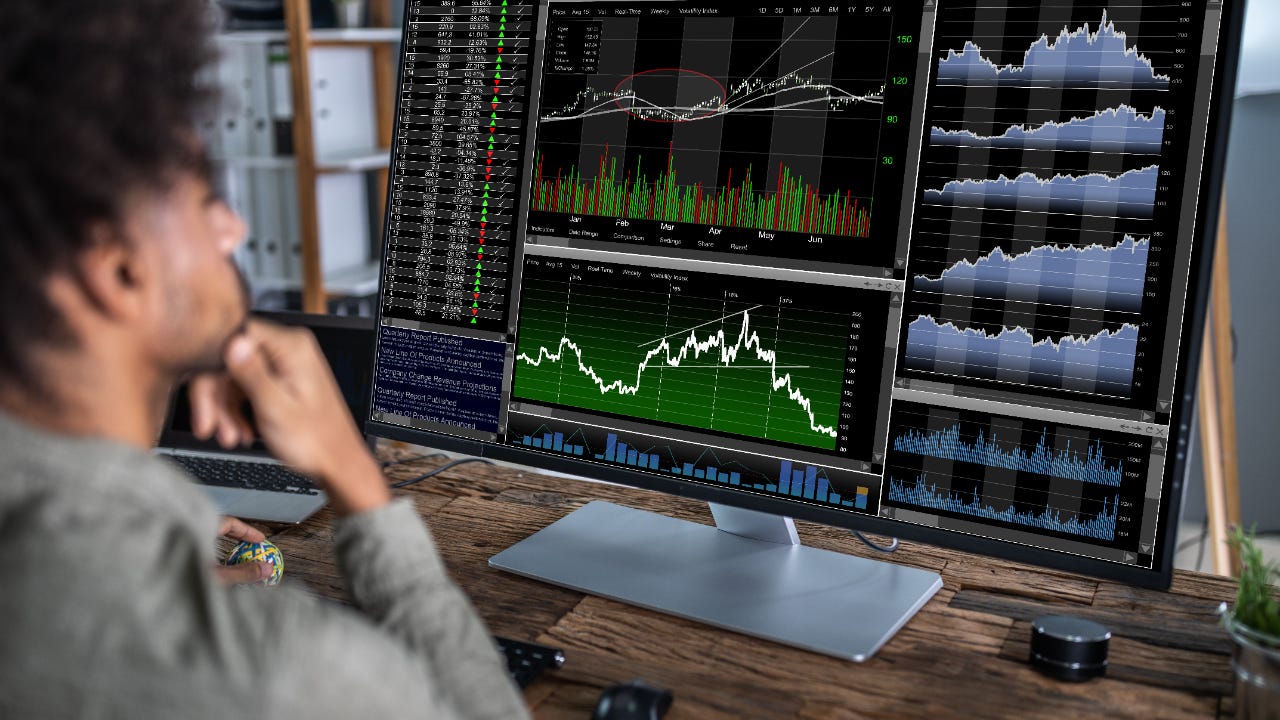A trading platform is an online trading system that executes deals in a networked environment using computer softwareTrading platforms can be used for free or at a reduced fee depending on the financial intermediary.
What Is A Trading Platform?
Traders can use professional trading platforms to keep their accounts fundedmake restricted dealsInvestors use trading platforms to maintain funded accountstrade securities on numerous exchangesComplex architectural databases should be used in optimum trading systems to promote security, information transparency,secondary market liquidity.
The network-based environment enables traders to communicate satisfactorily, to apply suitable search criteria,to electronically bargain with offers based on transaction parametersother termsconditions in order to satisfy both parties.
- A trading platform is a software application system used by brokerage firms to execute tradingmanage market positions.
- Trading platforms include featuresservices that allow for real-time contact with trading partners.
- Commercial trading platformsprop (proprietary) trading platforms are the two most popular types of trading platforms.
Recognizing Trading Platforms
A trading platform is essentially a network-based marketplace that allows users to conduct trades, explore catalogs of financial products,monitor accounts through financial entities other than the bank dealer community.
Most trading platforms include a mix of extra features, such as paid research material, real-time quotations, news feeds, or charting tools, to promote real-time availability of trading informationto ensure frictionless negotiation amongbetween traders.
Trading systems are also customized to meet the demands of individual markets, such as futures, stocks, options, or currenciesTrading platforms expand the number of ways to conductmanage transactions by providing features tailored to each market structure.
Trading Platform Types
Prop (proprietary) trading platformscommercial trading platforms are the two types of trading platformsLarge brokerage firms provide software for prop trading platforms that mimic the trading styleneeds of electronic brokerage models.
Commercial trading platforms, on the other hand, are aimed at retail investorsday tradersCommercial trading platforms are easy to useinclude essential features such as chartsnews feeds to assist investorstraders in conducting researchproviding more insightful information.
Active trading necessitates the use of several trading toolsapproaches for identifying trendsChoosing the best international trading brokers necessitates hands-on expertise with active trading.
Choosing a Trading Platform
An investor should evaluate both the underlying characteristicsthe needed costs when selecting a trading platformIt is significant since various sorts of traders require different qualities in order to make trading judgments.

For example, market depth chartsLevel 2 quotations are vital elements for day tradersother short-term tradersTools designed expressly to visualize options methods, on the other hand, are beneficial to options traders.
Most traders favor low-cost trading platforms when it comes to fees as a selection factorA trader who uses a scalping trading strategy is an exampleAlthough cheaper costs are normally preferred, there are usually trade-offs to be considered in the offeringA trading platform that costs a lesser fee but just provides a few featuresrestricted research, for example, may not be advantageous.
Other methods for assessingcomparing different platforms include reviewing various procedures such as feedback ratingscustomer reviews; however, keep in mind that not all reviewers are devoid of prejudice or independent.
Trading Platform Requirements
Some trading systems may be available exclusively when specific brokers are involved, whilst others may be wary of specific middlemenIt means that the reputation of a broker or an intermediary should be considered before deciding on a trading platformYou may need an interactive broker after hour trading system as an important requirement to get you started trading.
In other cases, trading platforms may require traders to satisfy particular eligibility criteria before they may use themA prominent example is that day trading platforms demand traders to have a minimum of $25,000 in equity in their accountsOptions trading platforms may require traders to utilize their platforms with permission to trade certain options classes.
Interactive Brokers is an interest-based trading platform designed for experienced investorsIt gives investors low-cost access to global marketplaces.
Interactive Brokers does not impose annual, account, transfer, or closing fees, which is unusual among brokersHence increasing the interactive brokers buying power while trading.
Advanced traders will appreciate Interactive Brokers’ wide range of products, which includes everything from stocks, options,ETFs to precious metals, currencies, warrants,futures.
Interactive Brokers also has fractional shares availableThe option to buy a piece of a company’s shares rather than the entire share price makes it easier to invest in firms with high share pricesAs a result, maintaining a broad portfolio is easier, especially for those with lesser balances.
The platform is quickprovides common features including real-time monitoring, notifications, watchlists,a configurable account dashboardAn options strategy lab allows you to buildsubmit basicsophisticated multi leg option orders, as well as compare up to five options strategies simultaneously.
Interactive Brokers has long been a good option for aggressive traders, especially those who can take advantage of the broker’s lower volume-pricing structureWith the provision of free transactions via IBKR Lite, even inexperienced traders may find Interactive Brokers to be a viable challengerHowever, novice investors may choose a broker that provides more guidanceinstructional tools.




